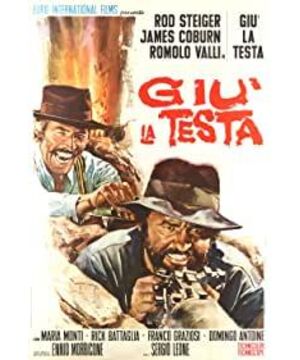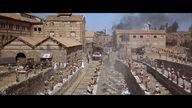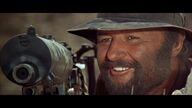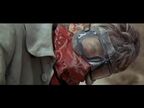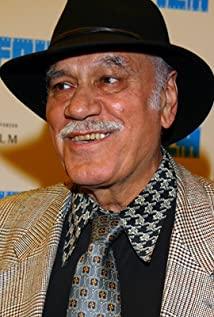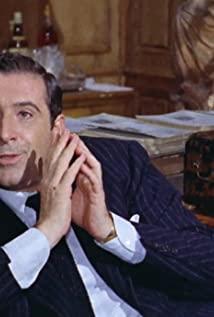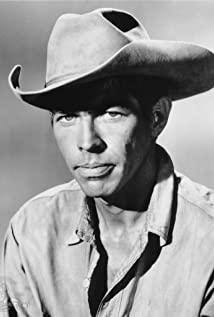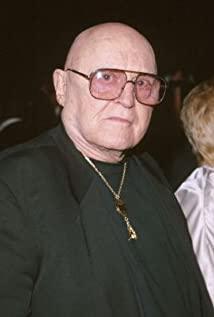The Mexican Revolution with the participation of Irish revolutionaries.
It feels like the film is exploring why revolution is necessary. How to be considered a true revolutionary. John participated in the Revolution in Ireland, experienced friendship, love, betrayal, wandering. He met Juan in Mexico. While he managed to get the bandit involved in the revolution, Juan had his own questions about the revolution. He was tired of the so-called revolution that changed like a wheel, and he was unwilling to serve as cannon fodder for these so-called revolutionaries. But he was infected by John and was willing to follow him through life and death. Disheartened, John, who has experienced betrayal again, decides to go to America. Inadvertently, they were involved in another battle and killed the dictator and his accomplices in the uprising. In the process, he had doubts about the betrayal again. Whether the betrayers were good or bad, these people were all before the betrayal. His close friends, and then faced death without hesitation, their betrayal was not because they were afraid of death, but because they could not bear the torture. John re-understood these things and these people, and the revolution became more obscure. His battles became a personal grudge against the dictator and his accomplices, far removed from the original purpose of the revolution. In the film, through John's eyes, see the city under the control of the dictator, opponents are shot, insurgents are shot, innocent people are slaughtered for no reason, but in the later part of the film, it is still through his eyes, see. The thing is that the victorious insurgents drive the losers together and massacre them. All this left him confused about the meaning of the revolution. There are four flashbacks of John in the movie, the first four are the friendship of the three people, and the second three are the friend's betrayal and his resistance. This may be the different nature of revolution. However, the author of this film is not very optimistic about the revolution, but he has not found other ways to make social progress and change people's ideas. At the beginning of the movie, Juan urinated on the busy ants under the roots of the tree, which may be his point of view.
View more about Duck, You Sucker! reviews


